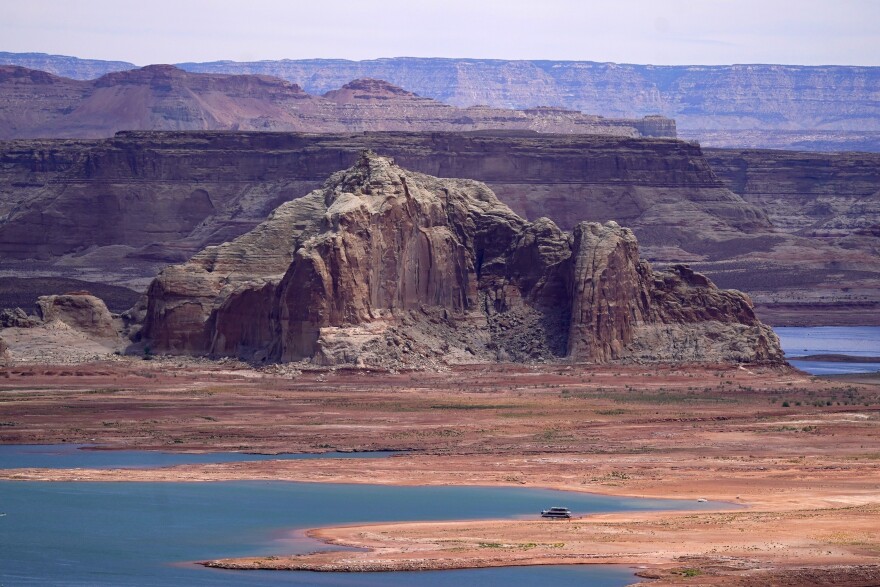By Susan Montoya Bryan
Within the heart of the Navajo Nation and in the shadow of the sandstone arch that is the namesake of the tribal capital, a simple greeting and big smiles were shared over and over again Friday as tribal officials gathered: “Yá‘át’ééh abíní!”
It was a good morning, indeed, for Navajo President Buu Nygren as he signed legislation in Window Rock, Arizona, outlining a proposed settlement to ensure three Native American tribes have water rights from the Colorado River and other sources — and drought-stricken Arizona has more security in its supply.
The signature came a day after the Navajo Nation Council voted unanimously in favor of the measure. The San Juan Southern Paiute and Hopi tribes also approved the settlement this week.
Now, the three tribes in northeastern Arizona will be working to get Congress’ approval for what could be the costliest water rights settlement in U.S. history.
Nygren told the crowd.“We’ve got a tall, tall task, but we’re going to get it done.”
The Navajos have one of the largest outstanding claims in the Colorado River basin, and officials say the needs across the territory exceed the proposed price tag of $5 billion.
Nearly a third of homes in the Navajo Nation — spanning 27,000 square miles (70,000 square kilometers) of Arizona, New Mexico and Utah — don’t have running water. Many homes on Hopi lands are similarly situated, and the San Juan Southern Paiute have been left for generations without a reservation — or water rights — to call their own.
Tribal leaders told The Associated Press in an interview Friday that the proposed settlement is about more than just a fundamental right to water. It marks a new path, they say, for cooperation among Native American tribes as they plan for the future amid the worsening effects of climate change.
While efforts to negotiate an agreement have been generations in the making, the leaders said the ongoing drought and the effects of the coronavirus pandemic were among the challenges that drove the latest round of talks.
Navajo Council Speaker Crystalyne Curley said Friday that the importance of having clean, reliable sources of drinking water became even more apparent during the pandemic.

